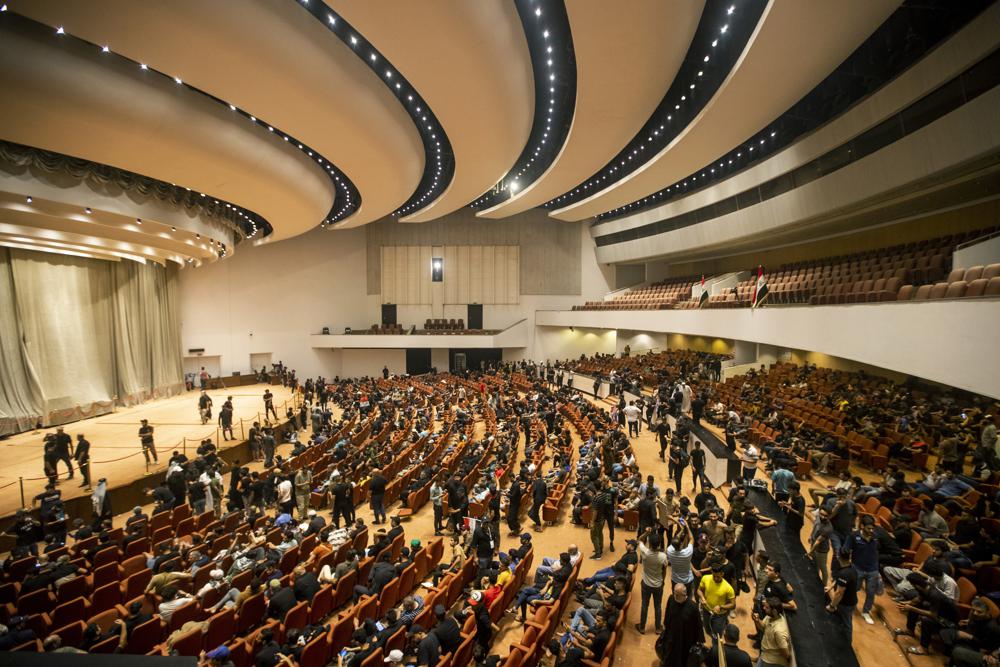An end to Iraq’s political standstill, which has gone on for over a year, appears hopeful after Parliament convenes on Thursday to elect a new president.
The political elite has been unable to reach a consensus, delaying the formation of a new government, which has dragged on for the country’s worst crisis in years.
Political rivals have been arguing over who should become the next prime minister and president for months. The issue of how to split up government positions has also been controversial.
According to an unofficial agreement between political parties, the post of prime minister is reserved for the majority Shiite community since the 2003 US-led invasion that toppled Saddam Hussein’s regime.
The largely ceremonial post of president is secured for Kurds, and the Parliament speaker must be Sunni. Government posts are divided among the political parties based on their religious and ethnic background.
The Kurdistan Democratic Party and the Patriotic Union of Kurdistan have long agreed that the PUK would hold the position of president of Iraqi Kurdistan, while the KDP would lead the region.
However, after the KDP amassed votes in the Kurdish area in October, capturing 31 seats in the 329-member national Parliament, they demanded the position. The PUK only got 17 seats.
The Kurdish Democratic Party (KDP) has endorsed Rebbar Ahmed, the Kurdish region’s Interior Minister, while the Patriotic Union of Kurdistan (PUK) has nominated Barham Salih, the current president.
Both parties rebuffed demands to pick a conciliatory nominee, Abdul Lateef Rasheed among them, as of late Wednesday.
Ahead of the session, a number of independent and opposition MPs announced they would boycott the session, while the Iran-backed Co-ordination Framework, which holds about 140 seats, remains split on who to support.
A quorum of at least 220 seats is required for the session to be held. legislators failed to elect a new president three times this year because of this lack of a quorum.
A simple majority is required for the election of the president if the Parliament fails to achieve a two-thirds majority.
Due to the fear of protests, Iraqi security forces were deployed in Baghdad last night, closing off key roads and bridges leading to the Green Zone, the seat of government offices, Parliament, and foreign embassies with concrete blast walls.
Image Credit: AP Photo/Anmar Khalil



















